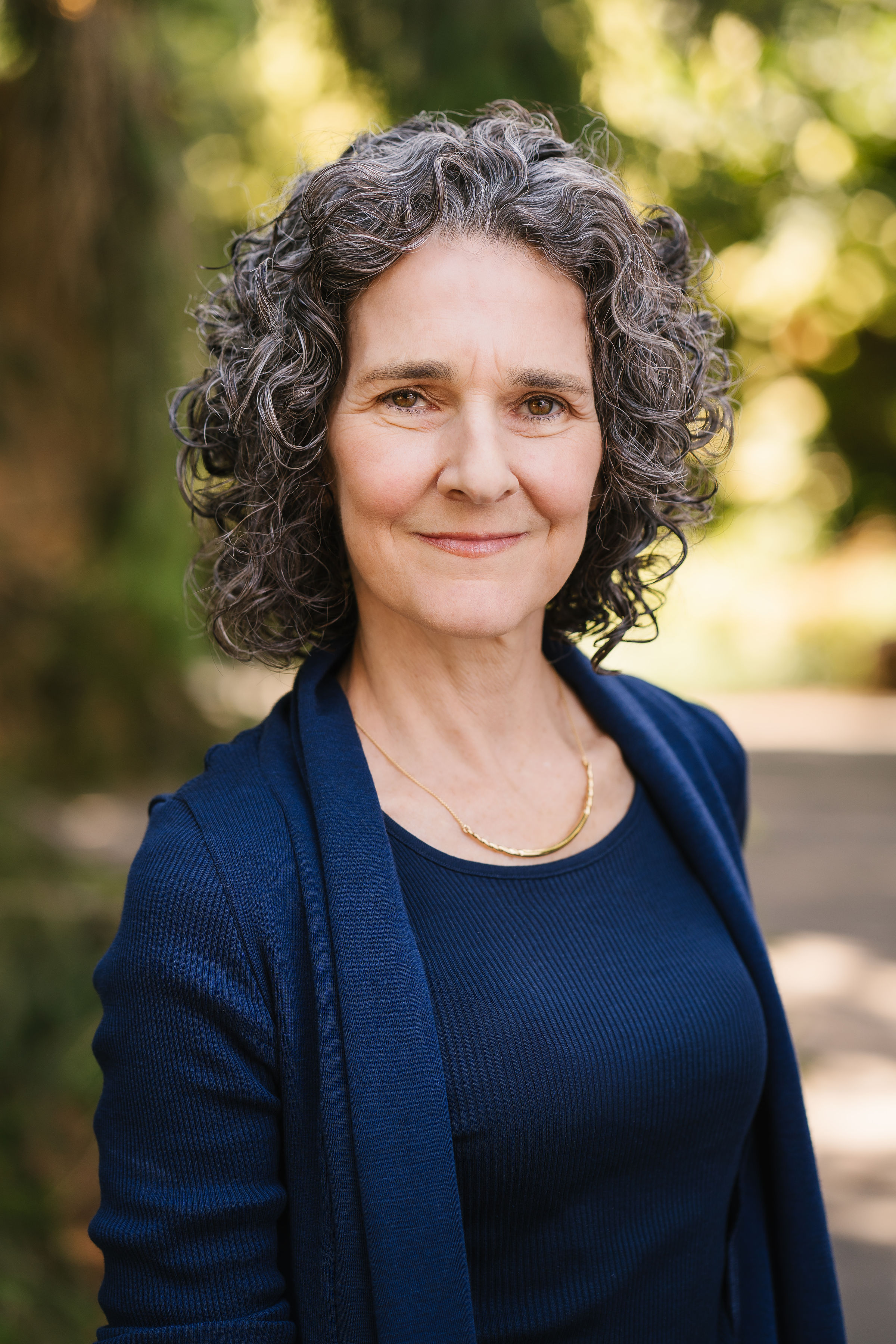I am a cultural and medical anthropologist interested in how societies organize themselves to provide social welfare, public health, and mental health care to individuals. My first book, The Too-Good Wife: Alcohol, Codependence, and the Politics of Nurturance in Postwar Japan, concerns women’s work in containing the social harms of heavy drinking. Through an ethnography of a Tokyo community health center, the book explores competing ethics of care and autonomy.
I have written on the issue of hikikomori, eating disorders in Japan, the behavioral psychology of mass public health screening, and the ethical commitment to inclusion and equality as it affects special education and mental health care. In 2022 I published an article on Covid-19 containment in Japan. My most recent research looks at aging and the ethics of neurological death and deceased and living organ donation in Japan and more broadly.
My current book manuscript project is an analysis of how postwar U.S. social scientists came to terms with Japan’s commitments to community, society, and family welfare. It focuses on five canonical texts in and how the authors carved space for imagining different pathways to modernity. In studying Japan’s commitment to familism, nation-ness, and anti-free market policies, they created new theories of collectivism, civil religion, the welfare society, and the power of social groups. The manuscript explores how, in surprising ways, Japan emerged as terrain for criticism and for probing the limits of American liberalism and individualism in the latter part of the 20th century.
For the past three years I have sat on the Bioethics Committee of the Robert Wood Johnson Hospital in New Brunswick, an experience which has shown me how health care providers, chaplains, nurses, and social workers engage in conversations about the ethical provision of care, particularly at the end of life.
My current research considers the ways that societies address failing kidneys, including kidney transplantation and kidney dialysis. I consider these as medical, technological, social, and ethical practices. They are windows into radical and interventionist methods of extending life in the context of advanced bio-medicine. I have been studying the kidney transplantation program at a public hospital in urban Japan. I am particularly interested in the ways in which living donation among family members makes kidney transplantation possible in Japan.
I have been a recipient of the Japan-U.S. Friendship Commission-National Endowment for the Humanities Social Science Fellowship (2017-18), Japan Foundation Fellowship for Long-Term Research (2011-2012), SSRC/CGP Abe Fellowship (2002-03), American Council of Learned Societies Charles A. Ryskamp Research Fellowship (2006-07), Social Science Research Council Dissertation Write-Up Grant (1993-94), Fulbright Graduate Fellowship and National Science Foundation graduate research award (1992-93), as well as travel and research grants from the Asia Library Travel Grants Program, University of Michigan (2013) and Northeast Asia Council (2011, 2005).
I was a member of the School of Social Science, Institute for Advanced Study, 2006-7 and a visitor in 2016-17. I have also been a faculty research associate at Hitotsubashi University (2011-2012), International Christian University (2011-2012), and Sophia University. At Princeton I am a faculty affiliate with the Global Japan Lab, Center for Health and Well-Being, Global Health Program, and University Center for Human Values.
Recent Publications:
“The Burdens of Self-Restraint: Social Measures and the Containment of Covid-19 in Japan.” Asia-Pacific Journal: Japan Focus, 2022
Introduction to William LaFleur’s, Biolust, Brain death, and the Battle Over Organ Transplants: America's Biotech Juggernaut and its Japanese Critics, Edward Drott, ed. Bloomsbury Academic, 2022
“Robert Bellah as Modernization Theorist: Comments on Matteo Bortolini’s A Joyfully Serious Man.”Civic Sociology, 2022
“Dialogues between Area Studies and Social Thought: Robert Bellah’s Engagement with Japan,” The Anthem Companion to Robert N. Bellah, Matteo Bortolini, ed. New York: Anthem Press, 2019
“Between Biopolitical Governance and Care: Rethinking Health, Selfhood, and Social Welfare in East Asia” (Borovoy and Zhang), with Li Zhang, Medical Anthropology, 36(1): 1-5, 2017
“Japan’s Public Health Paradigm: Governmentality and the Containment of Harmful Behavior,” Medical Anthropology, 36(1): 32-46, 2017
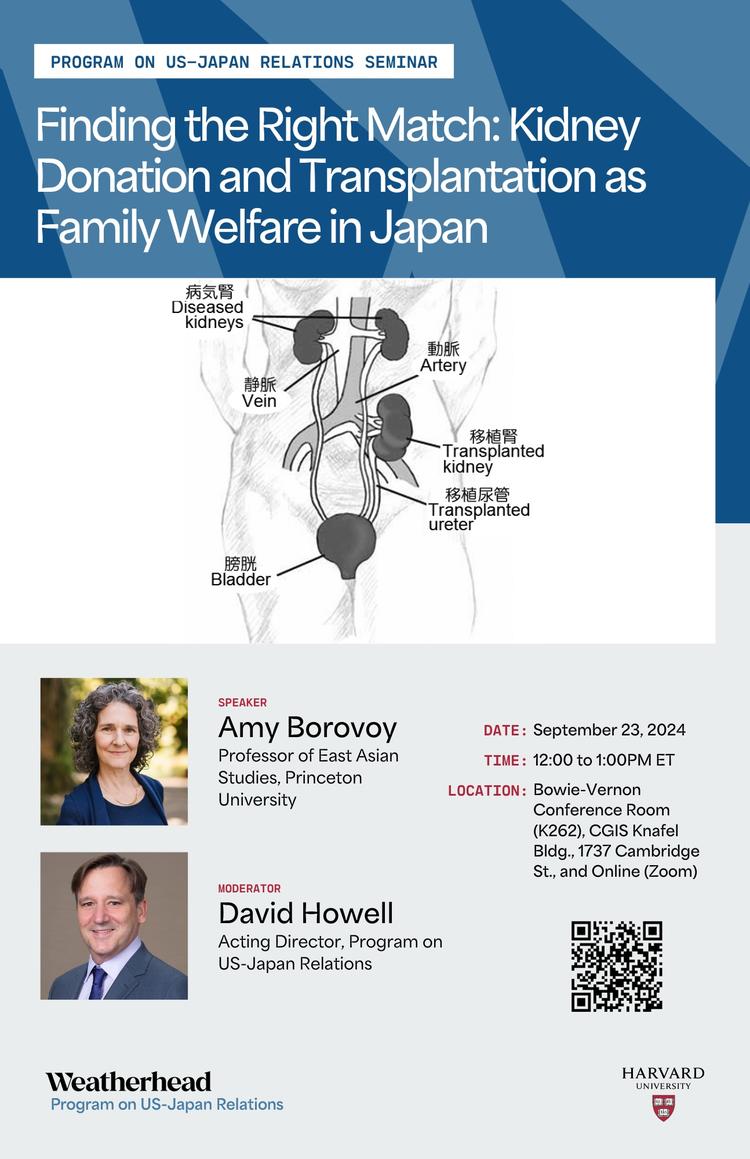
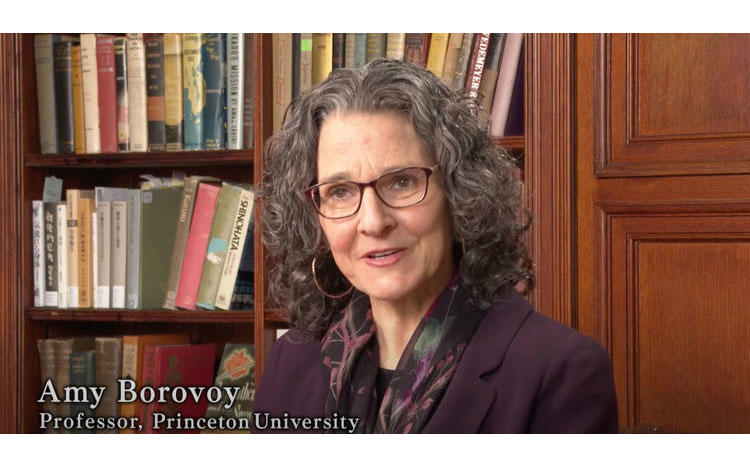
Amy Borovoy interviewed in “A Bridge Builder: The Life of Ezra F. Vogel”
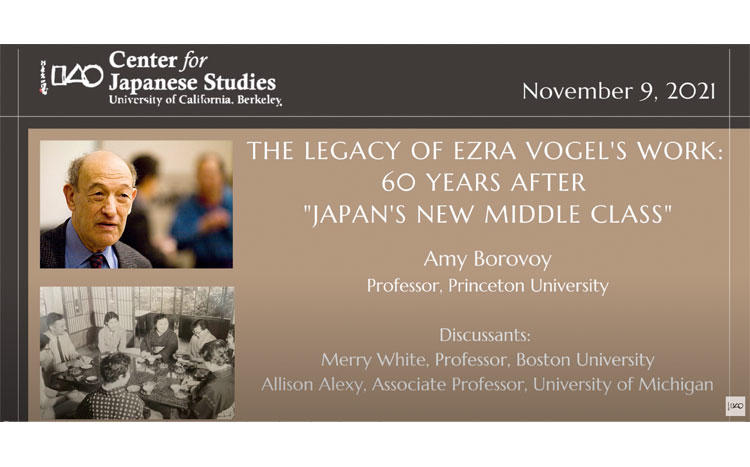
U.C. Berkeley - The Legacy of Ezra Vogel’s Work: Sixty Years after ’Japan’s New Middle Class’
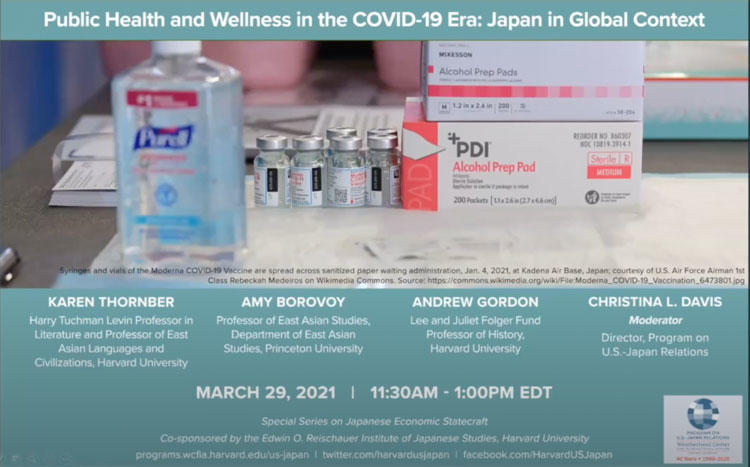
Harvard Weatherhead Center - Public Health and Wellness in the Covid-19 Era: Japan in Global Context
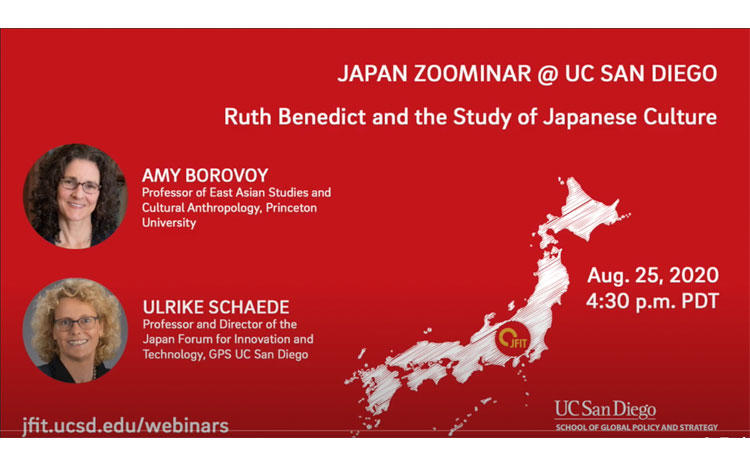
Amy Borovoy video zoominar @ UC San Diego (Ruth Benedict and the Study of Japanese Culture)

